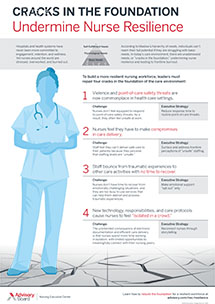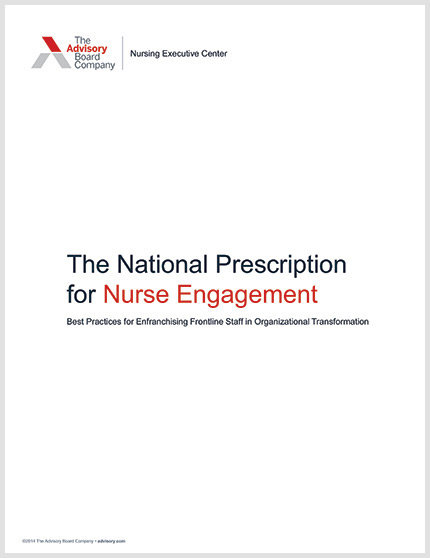Auto logout in seconds.
Continue LogoutMaine is the best state in the country for nurses, according to a WalletHub report published Wednesday.
Report details
For the report, WalletHub researchers assessed states on 21 weighted metrics. Researchers this year based 70% of a state's score on 11 metrics related to opportunity and competition (up from 10 metrics in 2017), while 30% of the score was based on 10 metrics related to work environment (up from eight metrics in 2017). The report included rankings for all 50 states and Washington, D.C.
The 11 metrics used to calculate opportunity and competition scores included:
- The educational opportunities available in a state, based on quality of nursing schools;
- The monthly average starting salary for nurses in a state, which was adjusted for cost of living;
- The number of nursing-job openings per capita in a state; and
- The number of nurses per 1,000 residents in a state.
The 10 metrics used to calculate work environment scores included:
- Any mandatory overtime restrictions in a state;
- The quality of a state's public hospital system;
- The ratio of nurses to hospital beds in a state;
- The share of nursing homes in a state that are rated among U.S. News & World Report's "Best Nursing Homes"; and
- Whether a state has a nursing licensure compact law.
State rankings
WalletHub in the report ranked the five best states for nurses as:
- Maine;
- Montana;
- Washington;
- Wyoming; and
- New Mexico.
WalletHub ranked Washington, D.C., as the worst for nurses, followed by:
- Hawaii;
- Vermont;
- Alabama;
- Louisiana; and
- Tennessee.
According to the report, several states fared better in one category than the other. For example, Nevada ranked third in the opportunity and competition category, but it ranked 35th in the work environment category. Conversely, Maryland and Connecticut ranked fifth and seventh, respectively in the work environment category, but ranked in the bottom 10 states in the opportunity and competition category.
Experts divided on overall nursing outlook
Experts in conversation with WalletHub cited multiple challenges facing the nursing industry—including an aging workforce and staffing shortages, burnout and compassion fatigue, and a blurring of the nurse role as traditionally defined—but they differed on the overall outlook for nursing as a career.
For instance, Sara Horton-Deutsch, a professor and Watson Caring Science Endowed Chair at the University of Colorado Anschutz Medical Campus, said she thinks the field of nursing "is at great risk," because nurses "in many ways … have become more like physicians," facing similar pressures, such as "how many patients can [they] see in the shortest amount of time."
In comparison, Holly Lorenz, chief nurse executive at the University of Pittsburgh Medical Center, said, "Nursing has a bright and exciting future in health care." Similarly, Michael Bumbach—clinical assistant professor in the Department of Family, Community, and Health System Science at the University of Florida College of Nursing—said the long-term outlook for nursing is "awesome." According to Bumbach, "the beauty of nursing" is that "there will always be patients as long as there are people"—and the current shortage of nurses means it's "not difficult to find meaningful and substantial work."
Experts also offered several recommendations to attract and retain nurses. Leslie Neal-Boylan, a professor and associate dean for academic affairs and program innovation at MGH Institute of Health Professions, said local governments and health systems should "offer sufficient pay and benefits …, support independent practice for nurse practitioners …, include nurses and advanced practice registered nurses at the table in committee and health and non-health related discussions."
Touching on scope of practice, Bumbach added that local and state governments should "let nursing regulate nursing and stop impeding the growing practice of nursing." Lorenz similarly pointed out that the failure of more than half of states to grant "full practice authority for advance nurse practitioners to practice independently … increases the cost of care" and "limits access to care for individuals living in rural regions and areas of critical access" (Oliver, Becker's ASC Review, 5/2; Marselas, McKnight's Long-Term Care News, 5/3; WalletHub report, 5/2).
Don't miss out on the latest Advisory Board insights
Create your free account to access 1 resource, including the latest research and webinars.
Want access without creating an account?
You have 1 free members-only resource remaining this month.
1 free members-only resources remaining
1 free members-only resources remaining
You've reached your limit of free insights
Become a member to access all of Advisory Board's resources, events, and experts
Never miss out on the latest innovative health care content tailored to you.
Benefits include:
You've reached your limit of free insights
Become a member to access all of Advisory Board's resources, events, and experts
Never miss out on the latest innovative health care content tailored to you.
Benefits include:
This content is available through your Curated Research partnership with Advisory Board. Click on ‘view this resource’ to read the full piece
Email ask@advisory.com to learn more
Click on ‘Become a Member’ to learn about the benefits of a Full-Access partnership with Advisory Board
Never miss out on the latest innovative health care content tailored to you.
Benefits Include:
This is for members only. Learn more.
Click on ‘Become a Member’ to learn about the benefits of a Full-Access partnership with Advisory Board
Never miss out on the latest innovative health care content tailored to you.


